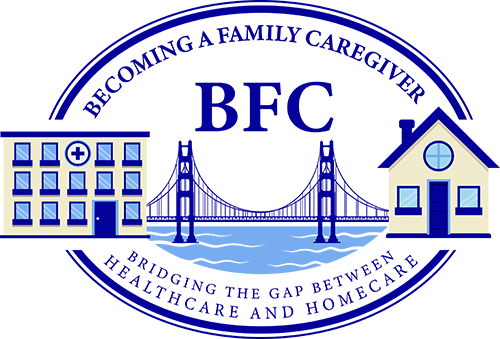Have you seen that commercial that asks, “Where do you hurt when you have depression?” and the answer is, “Everywhere.”? That came on while I was helping do something this week for Lynn and suddenly I realized that maybe I have “misdiagnosed” his symptoms.
Lynn started on Rebif about two months ago. Over the past month, he has become more and more tired the day after his shot but even between those times, he feels bad. It’s not aches and pains but more of a heaviness–the weight of not feeling good. He has also gotten very irritable, more impatient than usual and, though he controls it well, he gets angry very easily.
I was talking to his primary care doctor about something else and she asked how he was doing with his new medications. She was concerned because one of the major side effects of Rebif is suicidal thoughts. I assured her he was not suicidal but that he was having some emotional effects and might need intervention for them but I would call back if I decided that was the case.
Later I talked to Lynn about it and told him that I thought that was what was going on with him. He uses an antidepressant already due to struggling with depression associated with just having MS but I think he now needs more. He thought about it and agreed, but he said to tell the doctor he was not so much suicidal but homicidal (don’t worry, he was joking about that. He would never actually try to hurt me or anyone who came here.) What is actually happening though is that his frustration level rises quickly and he throws off weights that he is using to exercise or he shoves things roughly out of his way or his language gets rather colorful–all of which can be signs of depression.
What is depression actually?
It’s basically a mood disorder that can vary in degrees of severity.
- There can be situational depression–you get depressed because you just lost your job and finances are already tight. That type of depression usually gets better as the situation gets better and once a resolution to the issue is found, the depression goes away.
- Then there are depressions caused by a chemical imbalance–the body doesn’t secrete enough of a particular chemical to keep your system in balance and depression occurs. Antidepressant medications often work to restore the appropriate levels for the person with this type of depression.
- Depression can also be due to medications. Sometimes medications will cause a chemical imbalance and changing the medication will help relieve the symptoms.
- Then there are the medical disorders that predispose you to depression; like MS. A significant number of MS patients develop depression either due to the lack of stimulation by the nerves to the organs that control the chemicals noted above or due to the impact of the disease on the person’s life.
When a person has depression, they lose interest in a lot of things. When I first noticed that Lynn had depression, it was because he had a lot of “hopeless” talk and he lost interest in eating. He didn’t want to go anywhere or see anybody. His personality changed. He used to love to see people but when depression started, he just wanted to stay in his room and didn’t care if anyone came to see him or not; not even his son whom he is very close to, or his Mom and sister. After a few weeks of that not changing, I told his neurologist he was depressed and needed medication and he referred him to a psychiatrist.
Lynn didn’t really want to see a psychiatrist because he didn’t want to “sit around and talk about my feelings.” I told him that wasn’t really the purpose of the appointment. Psychiatrists (MD) often treat with medications and psychotherapy techniques while licensed clinical social workers (LCSW) or licensed clinical counselors (LCC) often do those “talking about feelings” therapies. A psychologist, another type of therapist, uses tests to help determine what is going on with someone and then refers them to either an LCSW/LCC or to an MD depending on the suggested diagnosis from the testing.
Going to the right type of therapist is very important in getting the help you need. If you possibly have a chemical imbalance or will need medications, the psychologist, LCSW, or LCC, cannot do that so you should get an appointment with a psychiatrist. If you want group therapy or the typical 50-minute therapy session where you talk about how you feel and what you can do about it, then you could do either the MD or the LCSW/LCC.
Whichever one you think you might need, go see them. I was depressed when I went through my divorce from my first husband. I went to an LCSW which really helped. I did need some medication so the LCSW contacted my primary care doctor to discuss what was needed and he prescribed something. So you can see that you don’t always have to have a psychiatrist but like in all fields, psychiatry has a lot of new medications coming out all the time. I recommend that you talk to someone who knows which medications do what and what will work best in conjunction with your medical condition and any other medications you may be using. Once you get the right mix, you’ll feel a lot better. Then the world will start to look sunny again and you can see hope returning.
If you think you or your family member might be depressed, mention it to your doctor. Depression is truly a miserable feeling and just like the commercial says, when you have depression, you really do hurt everywhere and everyone around you is affected as well. Don’t wait…Get the help you need.


Reblogged this on Advocating for MSers and commented:
Very helpful
I wanted to respond to your post about Rebif & depression. When I was first diagnosed with MS in 2005, the doctor put me on Rebif because it treated the MS aggressively. However, I found I could not tolerate it at all. I was on it for about a year and a half. This was while I was still working full time. My job was stressful enough but I found that I felt awful all the time. The Rebif was prescribed for 3 times a week and I would take it on Monday, Wednesday and Friday. The only day I felt halfway decent was on Sunday. Long story. But I remember crying a lot, feeling worthless in addition to feeling terrible physically. When I started thinking to myself “Hmmmm, this would all be easier to manage if I were dead.” the doctor took me off of it immediately and put me on Copaxone. He said that it is easier to tolerate for most patients. And that has proven true for me. This is only my experience with Rebif. Everybody is different. Things are better now . The depression is still there but I’m finding it easier to manage (with antidepressants). I hope things get better for Lynn. I’m sure they will. Take care.
Thanks for sharing your experience. Lynn was on Copaxone initially through a study. He tolerated it very well but the doctor wanted to try him on Rebif now because he has gone into secondary progressive. Im hoping this will get better but I’ll be watching him closely. Hope you continue to do well on Copaxone. It’s a good drug.
When my husband has depression he feels like has let the family down for the bread winner, but he has been seeing a counesler for a long time and after he sees him he is better, It is so hard on us as caregivers to see them suffer through it all